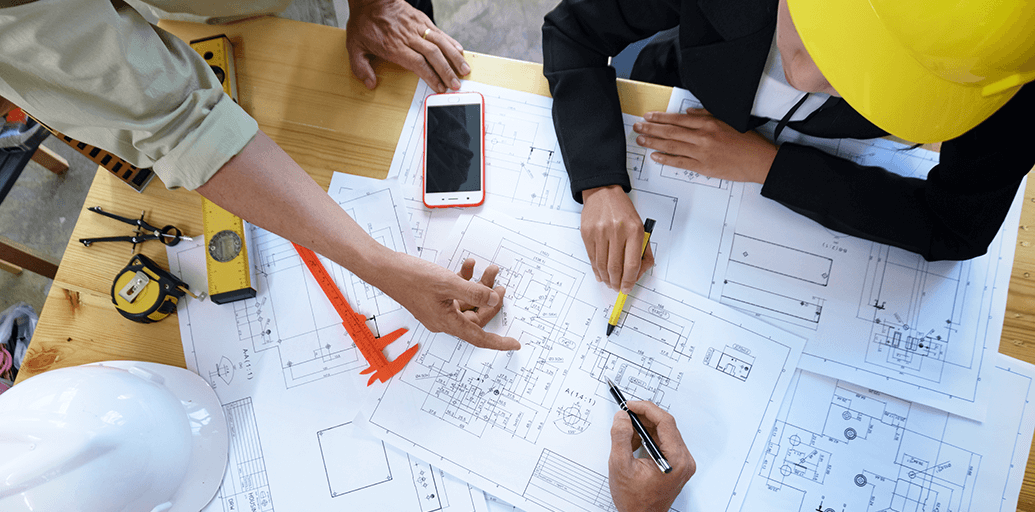Off-plan purchasing in Spain: 9 tips to follow

Buying off-plan is the act of buying real estate when it is not yet built or not yet completed. We can also speak of Sale in the Future State of Completion (VEFA). In Spain, the purchase of real estate off plan is commonplace in certain areas of the country due to the lack of available housing but this mode of investment is not without risk: delay in delivery, non-compliance of housing ... Discover all our tips for buying off plan and investing in real estate in Spain.
Tip # 1: Check if there are any built assets already
Before embarking on an off-plan purchase project, it is necessary to see if any existing properties are likely to be of interest to you. Thus, you will take less risk and be able to complete your project faster.
Tip # 2: Get collateral from the bank
During the economic crisis of 2008, many people who made an off-plan real estate purchase lost substantial sums of money that they had invested in the work. Since then, to avoid this problem, the Spanish banks have put in place what are called “avalales bancarios”, ie guarantees against the loss of money. This kind of contract with your bank will protect you much more than if you went through a collective for all the work and development.
Tip # 3: Seek out information about your promoter's economic situation
Before committing and investing money in a real estate purchase, it is advisable to find out about your promoter's financial situation. Look at the work already done and if it meets your expectations. Also check that the promoter is registered in the Commercial Register or in Spanish Registro Mercantil. Thanks to the tax identification number (NIF) of the promoter you can have an overview on the Internet of its economic situation and its reputation. Also make sure that the developer has his own insurance in case of structural damage to the building.
Tip 4: Obtaining a cadastral certificate
This certificate is essential because it indicates everything you need to know about the land you are about to buy. It specifies where the boundaries are, green areas, construction restrictions, public paths and also future constructions on the plot. The cadastral certificate is essential to have an overview of your property purchase in Spain. You can find this document in the cadastre offices, on the internet or by going to the town hall.
Tip # 5: Keep all documentation safe
In the event of problems, all this documentation will be invaluable and can work in your favor in the event that the promoter does not finish the work on time or that the standards indicated in the contract are not fully respected. In the event of such concerns, you have every right to request an extension of the time limit for construction, but you can also withdraw from the contract. In this case, any deposits you made will be returned to you with interest.
Tip # 6: don't sign a contract until everything is in order
It may seem obvious, but it is nevertheless necessary to recall it. Before signing a contract, verify that the amount of the transaction is clearly stated as well as the deadline for completion of construction. When the building is finished being constructed, you will receive a certificate of completion from the seller called in Spanish "certificado final de obra" as well as a permit for first occupation "licencia de primera ocupación". These documents guarantee that the construction is habitable and you will need them to settle in. To be 100% sure of what is going to be done, it is possible to hire a licensed surveyor who will be in charge of examining the property and checking that everything is perfectly in order as established with the developer.
Tip # 7: organize the space
Many promoters agree to work in direct collaboration with the buyer. You must therefore carefully study the plans provided in order to organize the space you have available in the best possible way. Enlarging a room, breaking a wall, building a partition, installing a bathtub or a shower, everything is possible as far as possible. Check that all changes are clearly indicated in the contract to avoid unpleasant surprises.
Tip 8: Ask for the energy estimate
By doing this, it will allow you to know which rooms receive the most sunlight and whether the accommodation is bright overall. You can also ask the developer to estimate the energy consumption of the future home.
Tip # 9: don't pay the promoter right away
When all the work is done don't pay right away. First, make sure that everything in the contract is fine with you and that it has been respected. You will need to check the finishes as well as the materials used, the paint and the common areas. Check that you have insurance in charge of covering any damage that the property could encounter as well as the energy efficiency certificate.
Please complete the form by clicking below and our advisers will get back to you as soon as possible to discuss your project.
You can also contact us at +34 872 268 850








